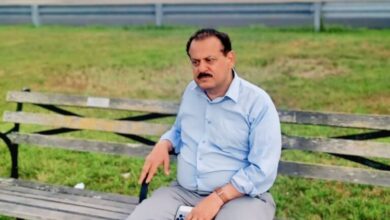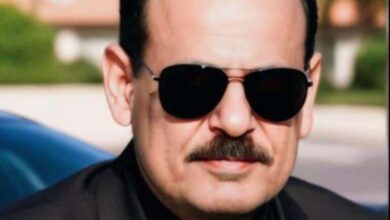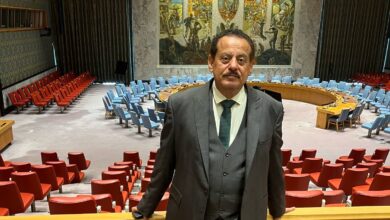Choice, Taboo, and the Unseen

Yemeni mp
Ahmed Saif Hashed
I completed my secondary education in 1981, and I had to make a crucial choice in response to the question: What comes next? I felt that the answer was significant, and I needed to choose wisely, as my future would be determined by it. I realized that this required some contemplation and reflection, and at times, I found myself grappling with confusion and anxiety.
I found myself at a crossroads, aware that I would pay the price for any wrong choice, and perhaps disappointment would accompany me for the rest of my life if I failed to make the right decision or misjudged the situation.
I wished to obtain a scholarship to study abroad, like many of my peers, even those who were less accomplished than I was, since my secondary results were quite good. I desired to study media, literature, international relations, political science, philosophy, sociology, or something similar. However, I seemed to be out of luck and lacking resources, as I did not receive support from any entity or individual that would allow me to compete for a scholarship.
After this setback, joining the military college seemed acceptable. This choice implied that I would shorten my journey; I was not willing to waste two years in military service, after which the unknown awaited me. I asked myself: Why not join the military college, where I could receive a monthly salary and graduate as a second lieutenant?
This option appeared accessible and feasible, particularly since it bypassed the two years of uncertainty that lay ahead. In military college, I would acquire military knowledge that might be necessary for my struggles in the northern part of the country.
Moreover, my brother, Ali Saif Hashed, was also a graduate of the military academy in Sana’a in the early sixties, and he had played a pivotal role in defending the republic, breaking the seventy-day siege of Sana’a alongside his remarkable comrades, such as Abdulraqeeb Abdulwahab, Al-Wahsh, and Saleh Sarhan.
I was indeed proud of my brother’s accomplishments in military life in defense of the revolution and the republican system. I yearned to follow in his footsteps or even surpass him if possible, despite the changing circumstances.
My brother, Ali, was brave, bold, and beloved, possessing numerous leadership qualities. I wanted to emulate his path in life, or at the very least, carve a similar one. He was a recognized officer known for his courage and valor. He was a revolutionary leftist, organizationally affiliated with the Revolutionary Democratic Party, a rebel against the regime in the north, and he viewed the issues of Yemen and its people as his foremost concern.
* * *
My acceptance into the military college depended on passing a medical examination. I assumed that acceptance hinged solely on physical fitness and perhaps a medical check, but it never occurred to me that it would include an examination of my genitalia.
Before the medical examination, I felt embarrassed at the thought of the doctor examining my private parts. I asked myself: How dare the doctor do this? Where would I hide my face in shame when it happened? What would this act entail?
What occurred was beyond my expectations before I decided to join the military college. Had I known, I would not have made this choice! I never imagined that something like this would happen during this unexpected passage, which caught me off guard, and at the examination, I felt embarrassment consuming me from the top of my head to the tips of my toes.
I wrestled with myself, suppressed my hesitations, and successfully passed the medical examination as well as the physical fitness test. My greatest fear was failing the medical exam due to mild varicocele in my testicles; however, it turned out to be minor and unnoticeable, posing no obstacle to my acceptance into the military college.
* * *
I recalled a man from our village—a sensitive, shy individual, deeply rooted in tribal values and a concept of masculinity shaped by his moral perception. He clung to these values fiercely, refusing to compromise even the slightest aspect, even if it meant killing himself. He preferred death over the humiliation of being seen in a vulnerable state, even by a doctor. He would not negotiate with what he perceived as shame, even when his suffering posed a dangerous threat to his life.
This man chose death over the examination of a hemorrhoid that had evidently reached an unbearable level of swelling, bleeding, and excruciating pain. This led him to make the fateful decision to end his life, seeking relief from the torment he endured in silence, weighed down by the shame that burdened him. He preferred a horrifying death rather than allowing a doctor to witness his nakedness. How burdened we are by shame and modesty to a degree that sometimes exceeds comprehension!
How can we dismantle the afflictions ingrained in us since our early childhood, rooted in our formative years and persisting into adulthood? We are in dire need of reconstituting the distorted consciousness shaped by grotesque notions of shame. The urgency to unravel the intricate knots that bind our lives and futures is immense, as they accompany us from childhood through the twilight of our years.
We desperately need to dispel the dense darkness that has seized the innocence of our early childhood, attempting to weigh us down with distorted perceptions of morality and values that can warp our awareness and upbringing. How essential it is for us to reconcile with ourselves, to coexist with our truths without masks, without falsification or distortion!
Our need is vital to learn reconciliation with ourselves in childhood and early youth, so we can embrace life healed and whole, free from the afflictions and complexes that destroy or cripple our consciousness, or burden it with debilitating costs that may even lead to the soul’s demise.
* * *
From another perspective, “shame” is not a fixed, immutable concept that resists change, nor is it impervious to transformation. Even though it may appear, in some respects, monotonous and conservative, or heavy and resistant to alteration, we ultimately find it shifts and evolves from one era to another, and from one society to another, just like other social phenomena.
Shame does not adhere to a singular standard; its definition is neither fixed nor universally perceived. Rather, it is contingent upon the evolution and stagnation of societies, subject to shifting concepts and changing social structures. The measurements and criteria for determining shame vary widely across different societies. What was considered shameful in the past, or even deemed sinful and criminal, may now be accepted or even preferred in the present or future.
What we once deemed a glaring shame may not hold the same weight today, and what is perceived as disgraceful now could evolve into something entirely different tomorrow. The societal perception of shame is diverse and fluctuating, occurring even within a single community.
I still remember the story my friend from our village shared about an incident in Aden in 1963. His father struck him on the head and pulled him by the ear simply for riding a bicycle, warning him never to repeat such an act and urging him to focus on his studies. At that time, riding a bicycle was considered disgraceful and scandalous by our parents in Aden.
Similarly, a woman’s veil or niqab might be seen by some as a mark of modesty, while others perceive it as ignorance and backwardness. The attire of women, in general, is subject to the same contentious discourse. Concepts of nakedness, indecent behavior, hairstyles of men and women, and many other matters are also enveloped in this intricate debate.
The notion of shame has its own development and historical context, governed by the law of opposing forces between the old and the new within societies. We often find individuals wielding the sword of shame, sometimes for tribal or authoritarian reasons, or deliberately for cultural or inherited motives aimed at undermining rights and freedoms, perpetuating oppression of certain groups within society, such as women, minorities, and marginalized individuals. Here, we witness an ongoing struggle between the outdated and regressive on one hand, and the progressive and modern on the other.
What is considered shameful in one society may not hold the same significance in another, and what one community deems disgraceful may instead be sought after and appreciated in another context. What is esteemed in one society might be perceived as abhorrent in another.
The concept of shame is not devoid of classism and bias. For instance, in a slave society, a rebellious or runaway slave was labeled as an “errant slave.” The shame of the masters scorned the slaves, condemning their rebellion and disobedience.
During the era of slavery, the ruling authority imposed its concepts, values, and laws upon society. The escape of a slave from their master and their rebellion against obedience were viewed as grave transgressions. It was said, “If a slave escapes, he has disbelieved,” with some versions adding, “until he returns to them.” In another version, it was stated, “If a slave escapes, his prayers will not be accepted,” and in another form, “he has absolved himself from responsibility.” This was a reality entrenched in power and its means of repression. The actions of the slave were not only seen as violations of prevailing values and customs but also as a departure from the community of believers, a crime that, by today’s standards, resembles “high treason.”
The lingering question remains: What sin did that individual commit, born or trapped against their will under the yoke of slavery, to be burdened with judgments we cannot discern as true or false? The perception of this slave has shifted; today, we recognize them as rebels and revolutionaries against slavery and oppression.
In many societies, women working was once considered shameful, but that perception has changed significantly. The appropriateness of women’s attire, including short or tight clothing, also reflects this shift. Similar transformations apply to discussions surrounding the veil, social mixing, cosmetic adornment, and celebrating events like Valentine’s Day.
Today, some endeavor to tame society or impose their outdated concepts, attempting to enforce notions that align with their interests. They impose shame for what they deem disgraceful and dictate what is acceptable or commendable.
Political Islam often attributes its failures not to the real causes—corruption, tyranny, oppression, and profound economic and political failure—but rather to a perceived distance from God. Consequently, they place the blame squarely on issues like social mixing, abandonment of the veil, the fit of women’s abayas, their adornment, the unveiling of their faces, and the prevalence of images showcasing bare heads and limbs on clothing and storefronts. All of these are framed as elements in a soft war waged against them by their adversaries.
Thus, we have witnessed numerous alarming campaigns targeting shops, restaurants, beauty salons, the internet, and personal freedoms, holding them fully accountable for delays in victory and for subjecting the nation and its people to misfortunes and calamities. This represents a justification for monumental failures, even more egregious and blatant. It is a profound bankruptcy that invades the minds of political Islam and its intellectual, cultural, and political proponents.
* * *
Returning to our primary subject and concluding it, I successfully passed the medical examination and completed the qualifications and acceptance documents, securing a seat in what was known as the National Democratic Front (Joudi), which allocated approximately 12 seats for that batch—specifically the tenth batch. There were additional seats designated for what was known as the National Liberation Movement, reserved for Palestinians, Omanis, Kurds, and Iraqi communists.
* * *






